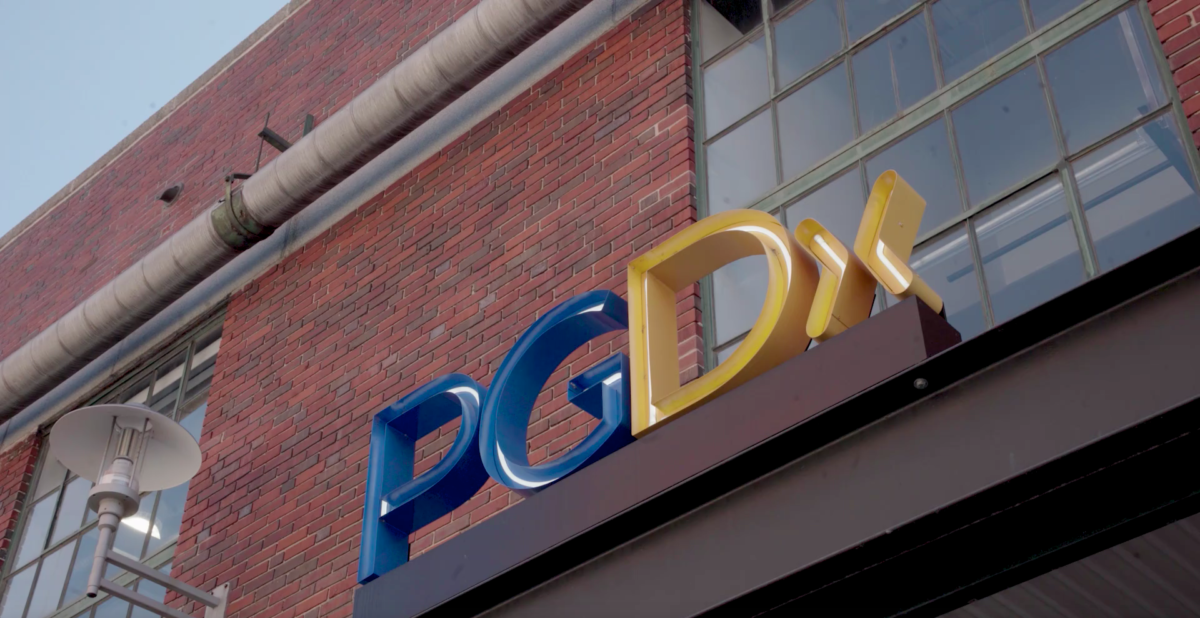There’s room for one more on the list of Baltimore companies that got acquired in 2021, and this is a big one for the biotech community.
Personal Genome Diagnostics (PGDx), a cancer genomics company founded by Johns Hopkins researchers that has grown a base in Baltimore over the last decade, was acquired by life sciences company Labcorp, the companies announced on Thursday.
Labcorp will pay $450 million in cash at closing, which is expected in the first half of 2022, with the potential for an additional $125 million to be paid based on future performance milestones. A Labcorp spokesperson said the two companies will operate separately until the deal is final, likely by the close of Q2.
Founded in 2010 by pioneering cancer scientists Dr. Luis Diaz and Dr. Victor Velculescu, PGDx set out to expand access to genomic-level tests for cancer. It most prominently developed kits that test a sample using chemistry performed on a DNA sample and software to automate data analysis. This analysis can be completed in a molecular lab at a hospital or clinic, meaning tests can be completed locally instead of being sent to a faraway lab. A PGDx product known as elio tissue complete received FDA clearance last year to analyze solid cancer tumor with a panel of more than 500 genes — a first for the test of its kind.
Specializing in technology known as next generation sequencing, the company has a portfolio of products that screen for cancer from a solid sample, as well as a blood sample, which is an emerging area known as liquid biospy. It’s among a generation of companies working to bring innovative tools that will provide doctors and patients with more precise information to make decisions about the best treatment for cancer.
Labcorp said the acquisition of PGDx will enhance its ability to open up access to the technology at hospitals, and bring it to pharmaceutical companies for clinical trial research.
As PDGx grew, it built in Baltimore, growing its employment base by attracting talent to the city interested in working on tech with a mission to improve life for people with cancer.
“Labcorp’s leadership and scale in diagnostic testing and drug development, coupled with PGDx’s innovative technology and suite of capabilities, will accelerate access to personalized treatments for cancer patients globally,” said Adam Schechter, chairman and CEO of Labcorp, in a statement. “PGDx’s comprehensive portfolio of next-generation sequencing products will meaningfully add to our breadth of capabilities, in line with our strategic priority to lead in oncology. PGDx’s technology is well positioned in an important segment with strong growth prospects. We look forward to welcoming PGDx’s talented team and working together to bring world-class diagnostics, technology and treatments within reach for all.”
PGDx started from discoveries made in the renowned research labs at Johns Hopkins School of Medicine. As the company grew, it built in Baltimore: It added space in Canton, culminating in what is now its HQ at Brewers Hill, and it grew its employment base by attracting talent to the city interested in working on technology with a mission to improve life for people with cancer. Along the way, PDGx also attracted venture capital investment rounds that were among the city’s largest. In February, it raised $103 million in a Series C round. This followed a $75 million Series B in 2018 and a $42 million investment that same year, and in 2015, it raised a $21.4 million Series A. When it comes to the business itself, the company said it had $22 million in revenue, and expects to grow to $40 million in 2022.
Now PGDx is set to join a publicly traded company that has made a global name in the life sciences community (COVID-19 testing? It does that). Labcorp has more than 7,000 employees, and serves clients in more than 100 countries.
For its part, PDGx has 114 employees, and no layoffs are expected as the company joins Labcorp. Asked whether the acquiring company plans to grow PDGx’s Baltimore presence, a spokesperson said both leadership teams are in the process of building a “comprehensive and thoughtful integration plan.”
“We share Labcorp’s vision of improving health care decisions and outcomes through science, data and a continued commitment to innovation,” said Megan Bailey, CEO of PGDx. “For over a decade, PGDx has made great progress toward that goal. As a part of the Labcorp family, we have an incredible opportunity to broaden and accelerate our impact on cancer care through Labcorp’s global reach.”
The news also marks the latest in a series of acquisitions for companies that spun out of Johns Hopkins, where Johns Hopkins Tech Ventures has supercharged efforts to nurture startups. Earlier this month, pharma startup Avidea Technologies was acquired by UK-based Vaccitech. Last year, cancer testing company Thrive Earlier Detection, which was founded out of Hopkins’ Vogelstein Lab, was acquired in a $2.15 billion deal by Exact Sciences.







